White Oak Pastures: How a 156-year-old farm practices “radically traditional farming”
Resilient decisions aren't always the efficient and profitable ones. The answer often can be found when you ask: “What is nature telling you?”
White Oak Pastures is a six-generation, 156-year-old family farm in Bluffton, Georgia. My family, the Harris family, has operated the same farm in Early County since 1866. Settled by Captain James Edward Harris, the farm has come full circle, meaning from a polycultural production system in the 1800s to a monocultural cattle farm in the 1950s, and then back to a polycultural system in the early 2000s.
We take pride in farming practices that focus on regenerative land management, humane animal husbandry and revitalizing our rural community. This type of management, which we refer to as “radically traditional farming,” creates products that are better for our land, our livestock and our village. We are fiercely proud of our zero-waste production system that utilizes each part of the animals we pasture-raise and hand-butcher on our farm.
White Oak Pastures’ transition to regenerative agriculture
In the mid-1990s, Will Harris (4th generation, and my dad) became disgusted with the excesses of the commodity market. There was no burning bush moment that led him to rethink this commodity production system, but he speaks about how the unintended consequences of commodity farming are so often discounted.
The changes Dad made on our farm were incremental, starting by giving up chemical fertilizer and confinement feeding to farm more regeneratively and in tune with nature.
He decided to build his own brand, White Oak Pastures, to market the livestock raised in Bluffton. In those early days, we were able to find processing locally, but off-farm, which gave us the opportunity to gauge demand for grass-fed beef, and incrementally find partners for our product.
In the early 2000s, we were blessed that our product caught traction, and Dad was successful in launching our grass-fed beef in Publix Super Markets and Whole Foods Market locations.
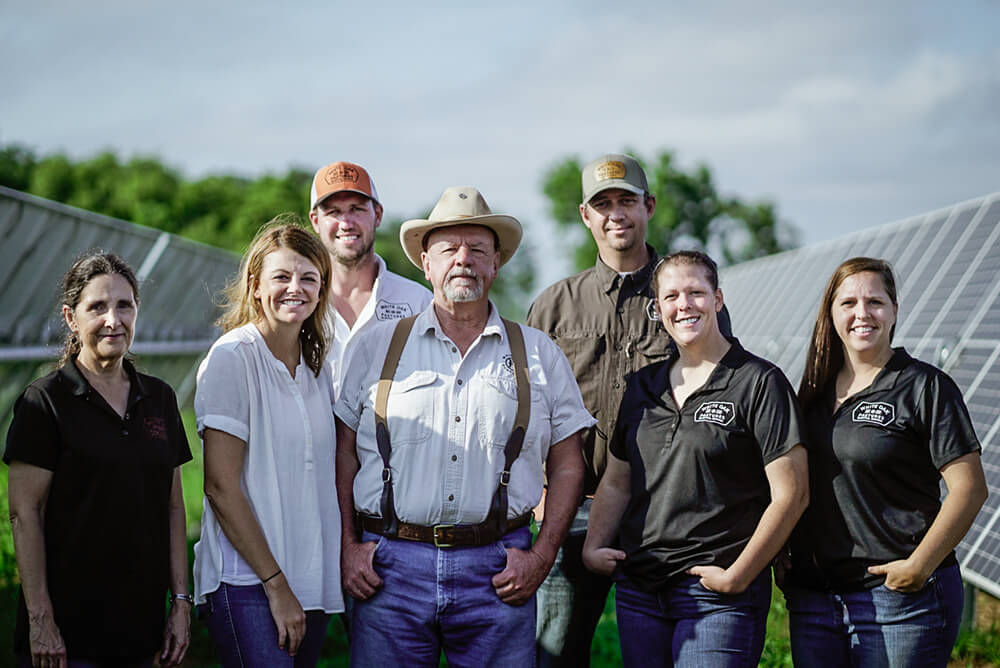
Processing on the farm
As we grew, processing became a bottleneck in our system, so Dad took the risk of building on-farm, USDA-inspected processing for our livestock. While it was never the plan to vertically integrate our production system, when we look back, it was certainly the thing to do.
While our context was to simply raise livestock, it became apparent that creating an infrastructure between us as farmers and “them” as customers was necessary to be successful.
Building processing on the farm allowed us to diversify the species we raise with confidence. Today, we pasture-raise and hand-butcher 10 species of livestock: cattle, goats, sheep, chickens, turkeys, ducks, geese, guineas, hogs and rabbits. We also collect pasture-raised eggs and grow certified organic vegetables. We make leather products and pet chews from animal hides and make tallow skin care products from fat. We believe our customers appreciate our artisan, small-batch products.
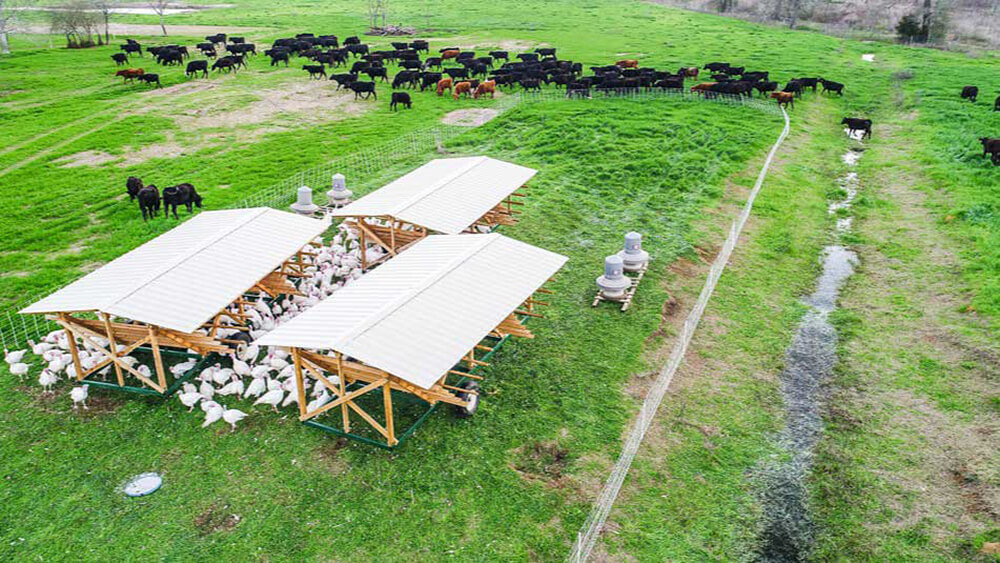
Building our operation one step at a time
Looking back through our evolution, we never formed a big picture vision. We just took one step at a time to build resilience into our system. And every one of these steps has been bumpy but worth taking. Pain brings change, and change is hard.
But, my grandfather, Will Bell Harris (3rd generation), always said: “If you do what you’ve always done, you’ll get what you’ve always gotten.” We know what we have done in the past is simply not enough. We have been blessed with good, hard work to do and the strength to do it.
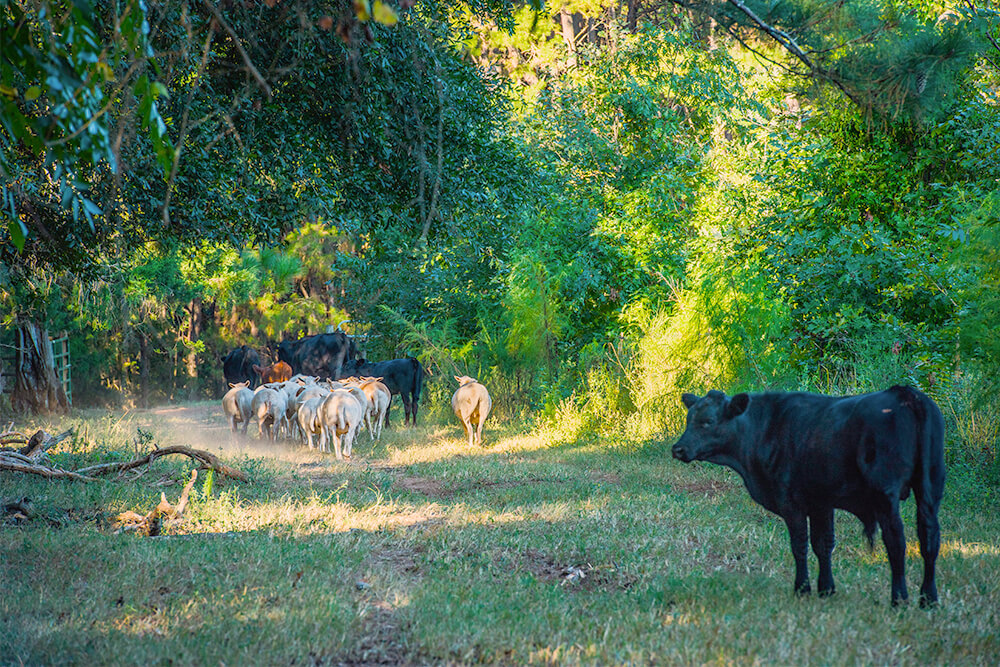
Focus on nature’s cycles
We are focused on raising food in a cyclical system that focuses on restarting the cycles of nature. We call restarting nature’s cycles “regenerative agriculture.” Cyclical thinking is the opposite of linear production, which are systems that are highly commoditized, centralized and industrialized. We believe that products raised and processed in this regenerative way are better for the animals, better for the land and better for the community.
In establishing this non-linear system, we’ve been successful in building resilience in our farming practices. Over 170 full-time employees work together each day to raise, harvest, butcher and ship the meats, poultry, eggs, vegetables and zero-waste items produced on our farm. Rebuilding our rural community was an unplanned yet positive consequence of bringing processing to the farm. We are grateful to have made our little town a nice little destination.
Resilient decisions aren’t always the efficient and profitable ones. In fact, they rarely are. So many of us, myself included, tend to get in the weeds with statistics, measuring and controlling, when the answer often can be found when you ask: “What is nature telling you?”
The photos in this article were provided by the author and used with their permission.
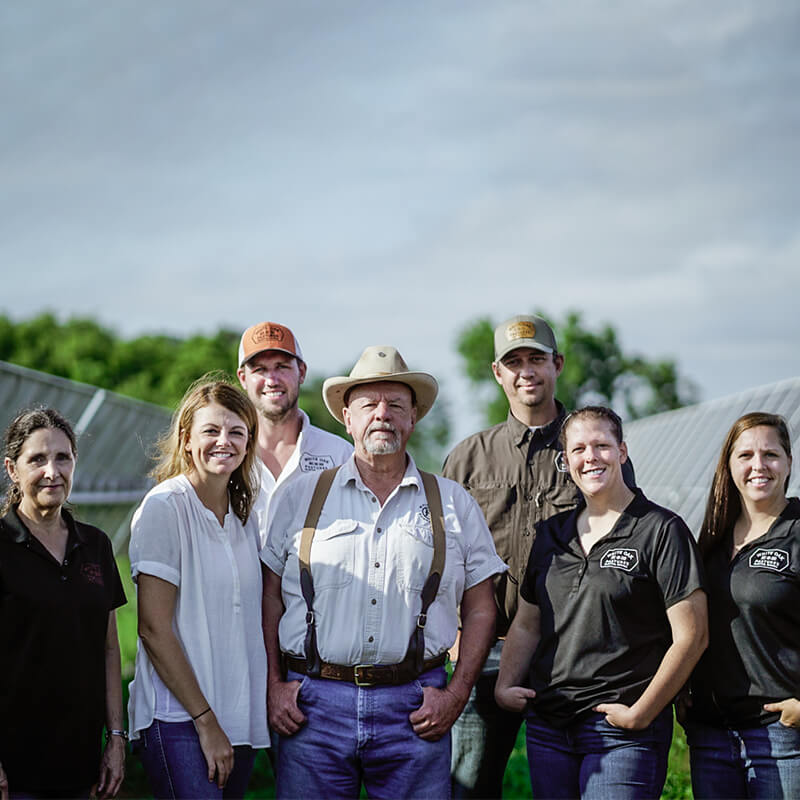
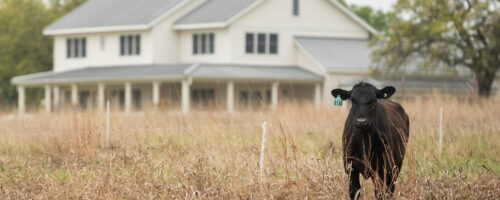
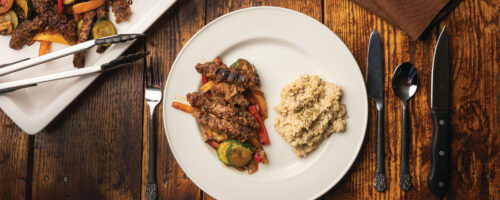
Comment